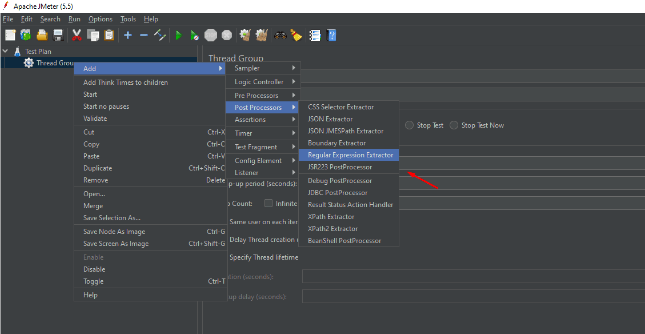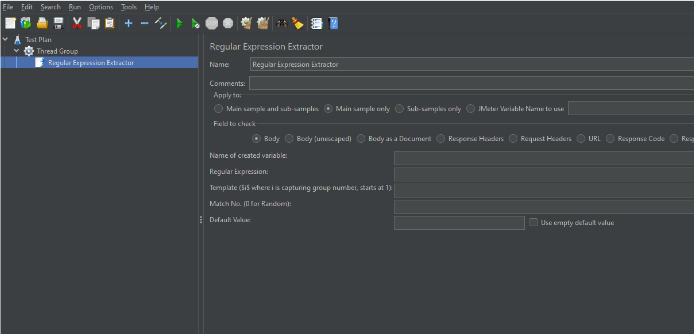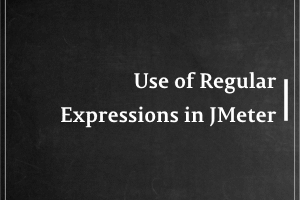JMeter is an open-source performance testing tool that allows you to simulate various scenarios and analyze the performance of your web applications. Regular expressions can be used in JMeter for various purposes, such as data extraction, request filtering, and assertions.


Here are some common use cases for regular expressions in JMeter:
Data Extraction: JMeter allows you to extract data from response messages using regular expressions. For example, if you want to extract a specific value from an HTML response, you can use a regular expression to match and extract that value. The extracted data can be stored in JMeter variables for further use in subsequent requests or assertions.
Request Filtering: Regular expressions can be used to filter specific requests based on their URLs or parameters. This can be useful when you want to include or exclude certain requests from your test plan. JMeter provides various elements such as “Regular Expression Extractor” and “URL Rewrite” to achieve request filtering using regular expressions.
Assertions: Regular expressions can be used in JMeter assertions to validate the response content. You can define a regular expression pattern and use it to check if the response matches the expected pattern. This can be helpful in verifying the correctness of the response data, such as checking if a specific string is present or absent in the response.
Parameterization: Regular expressions can be used for dynamic parameterization in JMeter. You can use regular expressions to extract dynamic values from responses and use them as input for subsequent requests. For example, if you need to extract a session ID from a response and use it in subsequent requests, you can use regular expressions to achieve that.
To use regular expressions in JMeter, you can leverage the built-in regular expression functions and elements provided by JMeter, such as “Regular Expression Extractor,” “Response Assertion,” and “URL Rewriting Modifier.” These elements allow you to define regular expressions and apply them to specific parts of your test plan.
Below are a few examples that show how regular expressions can be used in JMeter:
Data Extraction:
Let’s say you have an HTTP response containing a string with a specific format, and you want to extract a portion of that string. Here’s an example:
Response Body: “User name: Test user, ID: 54321, Email: testuser@gmail.com”
To extract the customer’s ID from the response, you can use the “Regular Expression Extractor” element in JMeter. Configure it as follows:
Field to check: Body (or wherever the response data is)
Reference Name: id
Regular Expression: ID: (\d+)
Template: $1$
In this example, the regular expression “ID: (\d+)” captures the digits following “ID:”. The extracted value will be stored in the JMeter variable “id” for further use in subsequent requests or assertions.
Request Filtering:
Let’s assume you want to exclude specific URLs from your test plan. For instance, you want to exclude all requests with URLs containing “admin” in them. Here’s how you can achieve this:
Add a “Regular Expression Extractor” element before the request you want to filter.
Configure it as follows:
Field to check: URL
Reference Name: exclude
Regular Expression: admin
Template: $0$
Add a “Response Assertion” element as a child of the excluded request.
Configure it as follows:
Apply to: JMeter Variable
Variable Name to Test: exclude
Pattern Matching Rules: Equals
Patterns to Test: admin
By using the regular expression “admin” in the “Regular Expression Extractor,” you capture any URL containing “admin” and store it in the variable “exclude.” The subsequent “Response Assertion” checks if the value of “exclude” equals “admin,” and if it does, the assertion will fail, excluding that particular request from the test results.
If you need to prove your skills in the .NET framework, get .NET certified on StudySection. StudySection provides .NET certification exam for beginners as well as experts in the .NET framework. This .NET certification can improve your resume’s success rate.




